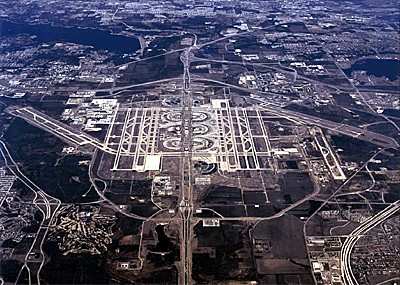Sun, Jan 15, 2023
Do Unto Others …
The Airline Passenger Experience Association (APEX)—a global non-profit dedicated to advancing the air-travel experience—has demanded the U.S. federal government compensate airline passengers after a Federal Aviation Administration (FAA) database failure grounded the entirety of scheduled flights within the U.S. National Airspace System for nearly three-hours on Wednesday, 11 January 2023.

The failure occasioned over ten-thousand flight delays and north of 1,300 flight cancellations—the whole of which adversely impacted millions of airline passengers and wrought more than $200-million in estimated economic damage.
APEX subsequently called upon U.S. Department of Transportation (DOT) Secretary Pete Buttigieg to hold the federal government to the same level of accountability he himself had demanded of airlines only one day prior to the FAA database failure.
On Tuesday, 10 January 2023, Buttigieg stated on Twitter, "We will enforce their [airlines’] responsibility to refund flight tickets and reimburse for alternate & ground transport, baggage costs, meals and hotels."

A program by which the U.S. federal government were held financially responsible for flight delays and cancellations engendered by failures of its agencies could be funded by, and passenger reimbursements drawn from, the billions of tax dollars air-travelers pay annually.
APEX CEO Dr. Joe Leader set forth: "The US government needs to rise to the same level of accountability to passengers as the airlines that have been paying hundreds of millions of dollars to protect customers for non-weather-related delays and cancellations. Air traffic control failures happen too often. This national failure highlights a need for the US government to redirect airline taxes to practice what they preach: protect customers when it's your fault within your control."

Citing the calamitous aftermath of the relatively minor, 11 January FAA database failure, APEX stressed the need for modernization of the nation’s Air Traffic Control system. U.S. government research has indicated that a Next Generation Air Transportation System (NextGen)—in addition to further protecting passengers from technical or otherwise manmade failures—could reduce airline fuel consumption by up to five-percent through more efficient traffic routing and management. Such and upgrade could also save billions of dollar paid annually by airlines and their passengers for fuel, equipment wear, and aircraft repositioning.
More News
Secondary Radar/Radar Beacon (ATCRBS) A radar system in which the object to be detected is fitted with cooperative equipment in the form of a radio receiver/transmitter (transponde>[...]
Aero Linx: Australian Society of Air Safety Investigators (ASASI) The Australian Society of Air Safety Investigators (ASASI) was formed in 1978 after an inaugural meeting held in M>[...]
Make Sure You NEVER Miss A New Story From Aero-News Network Do you ever feel like you never see posts from a certain person or page on Facebook or Instagram? Here’s how you c>[...]
From 2023 (YouTube Edition): Barking up the Right Tree Australian-born, the Aeropup is a remarkably robust, fully-customizable, go-anywhere, two-seat, STOL/LSA aircraft. The machin>[...]
Also: New Amelia Search, B737 Flap Falls Off, SUN ‘n FUN Unveiling, F-16 Record Captain Sully Sullenberger, the pilot who saved 155 people by safely landing an A320 in the Hu>[...]
 ANN's Daily Aero-Term (07.12.25): Secondary Radar/Radar Beacon (ATCRBS)
ANN's Daily Aero-Term (07.12.25): Secondary Radar/Radar Beacon (ATCRBS) ANN's Daily Aero-Linx (07.12.25)
ANN's Daily Aero-Linx (07.12.25) ANN FAQ: Turn On Post Notifications
ANN FAQ: Turn On Post Notifications Classic Aero-TV: Of the Aeropup and its Pedigree
Classic Aero-TV: Of the Aeropup and its Pedigree Airborne 07.07.25: Sully v Bedford, RAF Vandalism, Discovery Moving?
Airborne 07.07.25: Sully v Bedford, RAF Vandalism, Discovery Moving?





